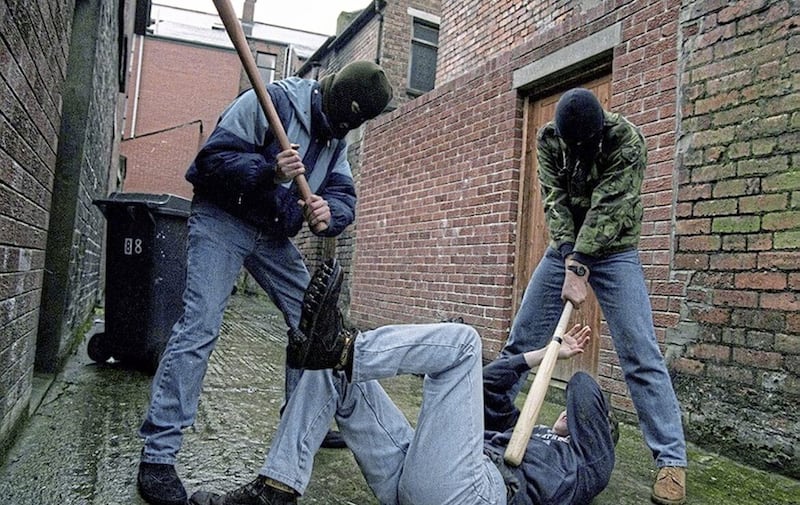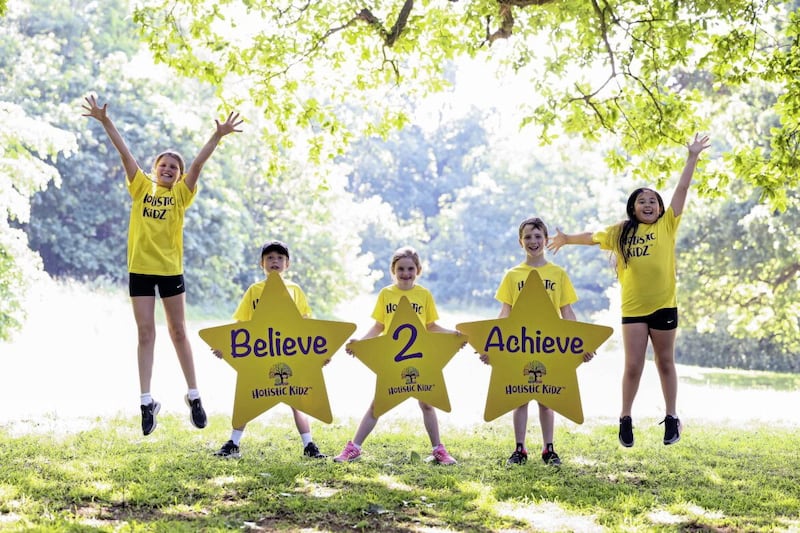PARAMILITARY attacks on young people are just another symptom of how sick our society here in Northern Ireland actually is.
This type of violent activity was not invented by today's republicans or loyalist paramilitaries. This particularly brutal form of perceived 'punishment' for alleged anti-social behaviour or crimes has been around since the 1970s.
This type of 'street justice' can range from warnings from paramilitaries to total expulsion from Northern Ireland, usually with the threat of violence or death if the order is not complied with. Other forms of attacks include severe beatings - usually with baseball bats - or shootings in the limbs, most frequently in the kneecaps.
This brutal activity boggles the mind of those who visit here. Let's be frank about it, most civilised societies do not shoot their teenagers or others they accuse of crime. They allow the judicial society to roll out the process in an official way.
But here in Northern Ireland, it happens frequently. We do things differently and it has become so normalised, barely anyone even so much as raises an eyebrow when an 18-year-old is taken into a dark alley and has two bullets fired into his knees.
This behaviour has become so sickeningly normalised that there are stories of shootings by appointment in some areas, and in others the victim's mother waits beside the alleyway to drive her son to hospital after he receives his 'punishment' via an informal criminal justice system that no-one ever seems to be held accountable for.
As a journalist, I spoke to many young men who had been through this most brutal of systems. None of them would ever go on the record. They were traumatised and brutalised. All of them were fearful of future attacks.
Many of them came from the most painful of backgrounds, had the most terrible of upbringings and were dealt every awful card in life. If you spend any time, like I did as a reporter, in the courts, you'll recognise that most young people up in front of the judge have had awful lives thus far, try to escape through drink and drugs and find themselves on the wrong side of the law.
It's no excuse. If people are committing crimes, they need to be punished, but through proper and official routes that will actually and positively change their outcomes. Not shot, brutalised, traumatised and thrown right back into an even more vicious circle of addiction and wrongdoing.
Now, thanks to the
[ Pains of ParamilitarismOpens in new window ]
research study, we are hearing the voices of those victims who, the authors found, some of whom had their first encounters with terror groups as young as 11-years-old.

The authors, Queen's University academic Colm Walsh and psychologist Dr Twylla Cunningham, spoke to 28 young men over two years as they explored the violence that still blights our communities in 2023.
They were real stories of grim childhoods, broken homes, drugs, abuse, alcohol addiction, neglect, violence, suicide and navigating the care system among many other challenges few of us who glance at a headline in a newspaper about so-called 'punishment shootings' could possibly comprehend.
One of the participants told the authors, "I've been under threat since I was like thirteen or fourteen." with another saying, "I got bottled over the head and all twice as well, and hit over the legs with hammers and then jumped on". Another victim said: "Every one of my mates have all been shot, every one of them."
Many of the participants knew those who were brutalising them, with one victim of a violent attack telling the authors: "My da would've drank with them as well all the time."
It's long past time that we as a society recognised that shooting and beating our teenagers, many of whom have known nothing but violence their entire life and are a product of that, is wrong.
It's not a simple issue. There is much work that needs to go into fully understanding and fixing why people in peace times are still turning to paramilitaries to solve issues of anti-social behaviour in our communities and why paramilitaries still have such a vice-grip on those communities.
But hearing the rarely heard voices of those who are at the receiving end of this sickening brutality, of humanising these young people and their stories, will hopefully make people care more, ignore less and move to stop it.
You can read The Pains of Paramilitarism here.








